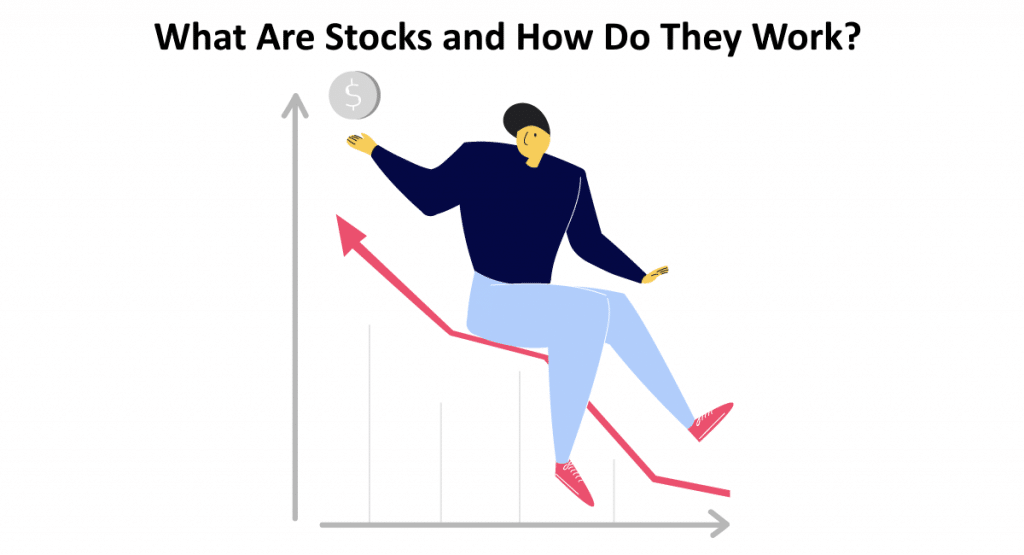The first question that most people ask when starting to invest is “what are stocks?”.
Stocks make up an essential part of any trading or investment strategy. Investing in stocks is a great way to build up wealth for long-term returns.
In the most simple sense, stocks are a way of buying a share of a public company. This gives you a small portion of ownership in that company. However, stocks and investing in them can be more complex than just that.
Follow our quick guide below on understanding stocks and how they work.
What are Stocks?
When a company is publicly traded, you can buy portions of its shares, or stocks. This means that the company is divided up into a certain number of shares, each share carrying a specific price. When you buy a share, you are buying ownership of a portion of that company.
This makes you a shareholder of the company. Being a shareholder in this sense doesn't mean you will be sitting in on board meetings with the CEO, but you will be able to vote as a shareholder.
For example, if a company offers 100,000 shares and you buy 1000 of them, then you own 1% of that company. If the company grows and increases its profits, your shares become more valuable. This allows shareholders to earn from the companies growth without being directly involved in the company.
Check out this short video explaining stocks from the U.S. Securities and Exchange Commission
How to Make Money From Stocks
The reason people buy stocks is not to get involved in the running of the business, but to make money from the business’s growth. This can be achieved in three different ways.
Either you buy the stock at a certain price, and the value of each share you own increases as the company grows. You can then sell your stocks for a profit.
The second way of making money through stocks is by investing in stocks that pay dividends. This is when you get paid out a percentage of the company's revenue as a shareholder. Usually, this is done every quarter. Dividends are not available with all stocks, so you will have to choose these specifically.
The third way is less common and more risk intense. This is done through derivatives. Derivatives get their value from other assets, such as stocks and bonds.
You can trade in stock options. This is when traders have the option to buy or sell the stock at a specific price on a predetermined date. Call options are when you can buy stocks at a set price – allowing you to sell them at a higher price when the value increases. Put options are when you can sell the stock at a fixed price. This allows you to buy at lower declining prices, and sell at the higher set price.
Stock market returns vary depending on the company and the market. Returns are usually between 7% to 10% over the long run. However, there is always risk involved and certain companies won’t perform as well as others. This is why investors buy a diverse portfolio of stocks in different companies.
How Do Stocks Work?
Stocks are traded on the stock market, where prices are constantly changing. Stock prices are based on supply and demand. This means that the stock price will increase in value if there is a high demand made by buyers.
If very few people are buying stocks, then the price will be lower. Stock prices can also rise if traders think that the company will be increasing its earnings. The general aim of stock trading is to buy low and sell high.
Companies introduce stocks to the market for the first time in a process called the Initial Public Offering (IPO). Once stockholders have bought shares in the IPO, they can then trade their stocks on the stock market.
Companies go public and sell stocks to gain more capital for their business. They use these new funds for various strategies to grow or invest in their business.
Stocks are bought and sold through brokers. These brokers represent each investor. If you are interested in joining the stock market, then you will need to open up an account with a stockbroker.
Different Types of Stocks
Stocks come in a variety of different forms. Most traders will invest in common stocks. These are forms of corporate equity that give the shareholder voting rights. Common stock values change depending on the time they are traded. If companies liquidate or go bankrupt, then common stocks are last to receive dividends, after preferred stockholders and bondholders.
Other types of stocks include preferred stocks, which can have more complexities. Stocks are generally categorized into different groups according to their sector. This includes things like basic materials, conglomerates, consumer goods, technology, services, financial, healthcare, and so on.
Some other types of stocks that you will likely come across include:
- Blue-chip stocks/income stocks: These are safer stocks to buy that pay out dividends. They do not offer fast growth, as they rely on stable industries and businesses. Blue-chip stocks are a good choice for long-term growth.
- Value stocks: Value stocks are attached to large, stable companies that are not expected to grow much or change in value. These stocks pay dividends.
- Growth stocks: These are stocks attached to companies that are anticipating rapid growth. Generally, growth stocks don't pay dividends. Investors like to buy exciting growth stocks, and sell them when the value rises.
Conclusion
Stocks give you a form of ownership in a company. This ownership has a value based on the performance of the company, offering investors the opportunity to sell stocks as their price increases to make a profit.
Stock trading is a key feature of any investing strategy. You get various types of stocks and ways of making money from them. The common idea is to buy low, sell high, and earn off the success of the company you hold shares in.





